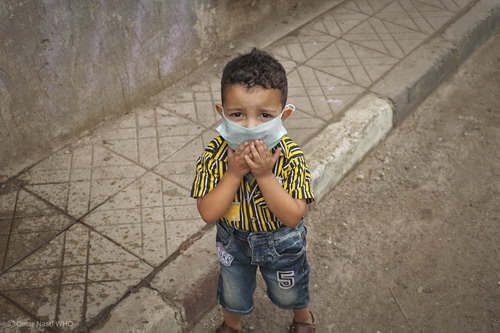 18 December 2019, Yemen – WHO has confirmed that there are no signs of unusually high rates of influenza in Yemen. Infection rates are typically higher between October and March, in Yemen as in other countries of the Eastern Mediterranean Region, but they have not risen beyond the normal seasonal pattern in 2019.
18 December 2019, Yemen – WHO has confirmed that there are no signs of unusually high rates of influenza in Yemen. Infection rates are typically higher between October and March, in Yemen as in other countries of the Eastern Mediterranean Region, but they have not risen beyond the normal seasonal pattern in 2019.
Seasonal influenza is an acute respiratory infection caused by influenza viruses which circulate in all parts of the world. Symptoms include a sudden onset of fever, cough, headache, muscle and joint pain, severe malaise (feeling unwell), sore throat and runny nose. The cough can be severe and can last 2 or more weeks, but most people recover from fever and other symptoms within a week without requiring medical attention.
However, influenza can cause severe illness or death, especially in people at high risk such as pregnant women, children under 5 years and the elderly. Vaccination is therefore recommended for these high-risk groups, and infection rates are monitored to detect possible outbreaks and respond to them quickly.
The number of reported severe acute respiratory infection (SARI) cases in Yemen this year is comparable to previous influenza seasons. No cluster of severe influenza cases or deaths has been reported through the national surveillance system, and there is no evidence of an avian influenza outbreak among poultry or wild birds, or any human case of avian influenza.
WHO continues to work with public health authorities in Yemen to monitor the situation, raise awareness, and prevent and control infection.
More information
Influenza in the Eastern Mediterranean Region
Seasonal influenza in the Eastern Mediterranean Region


